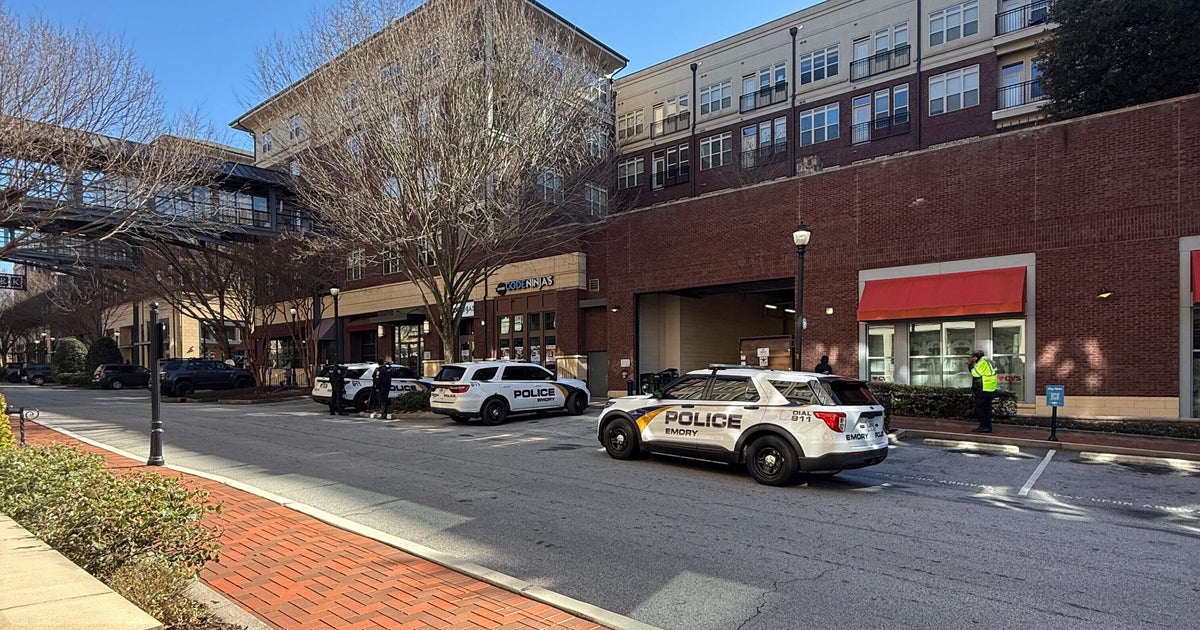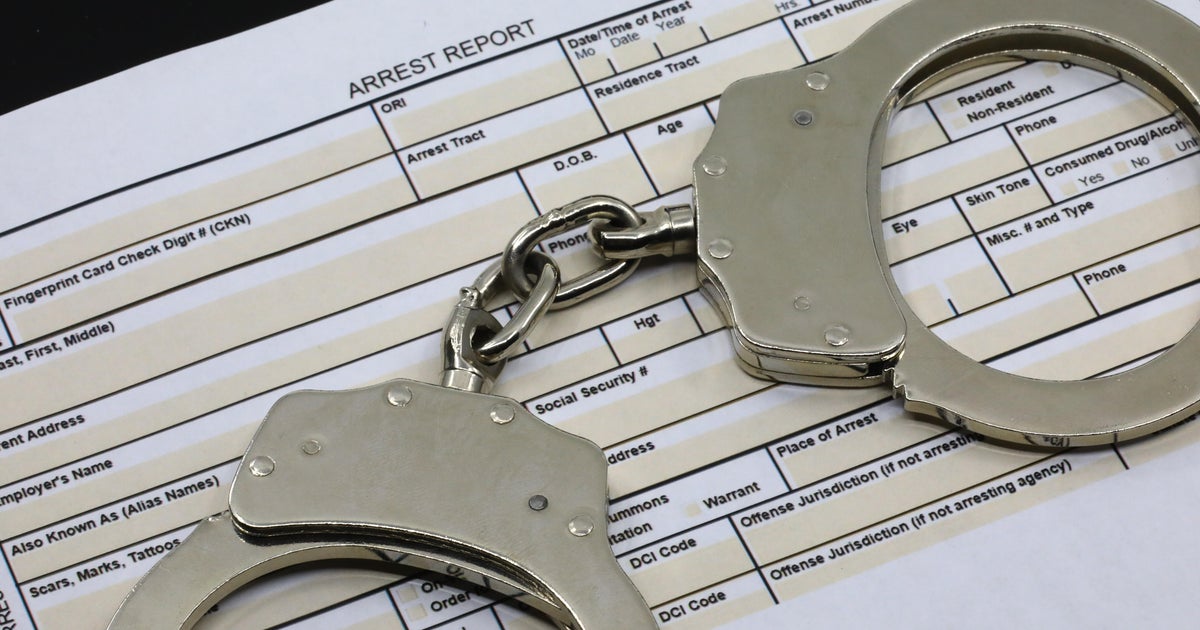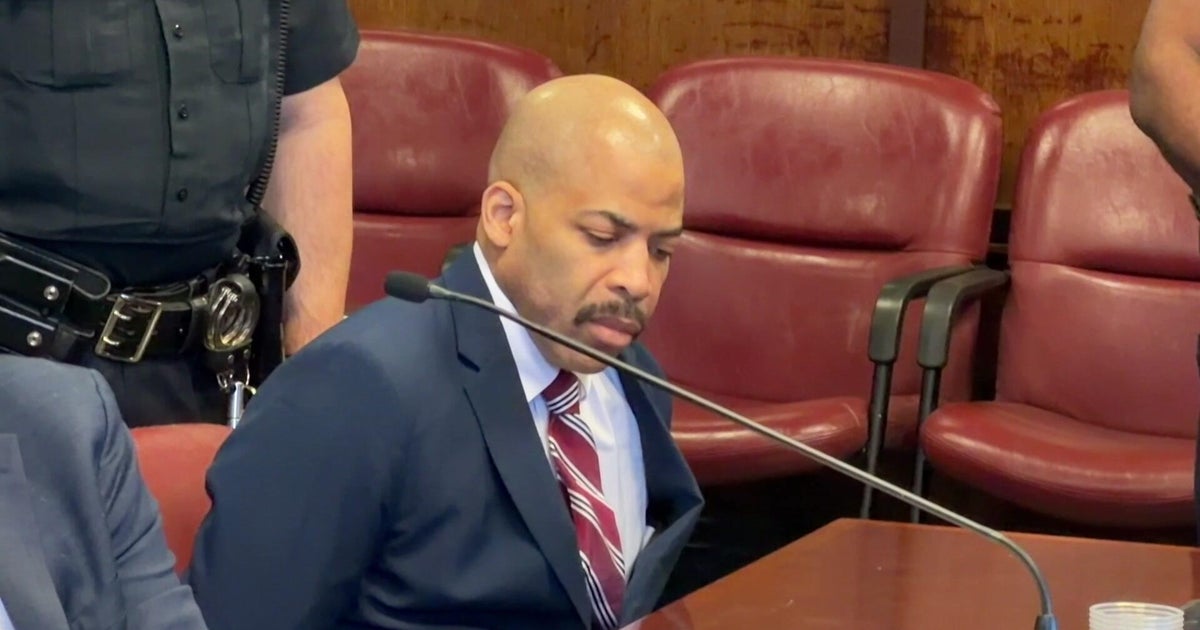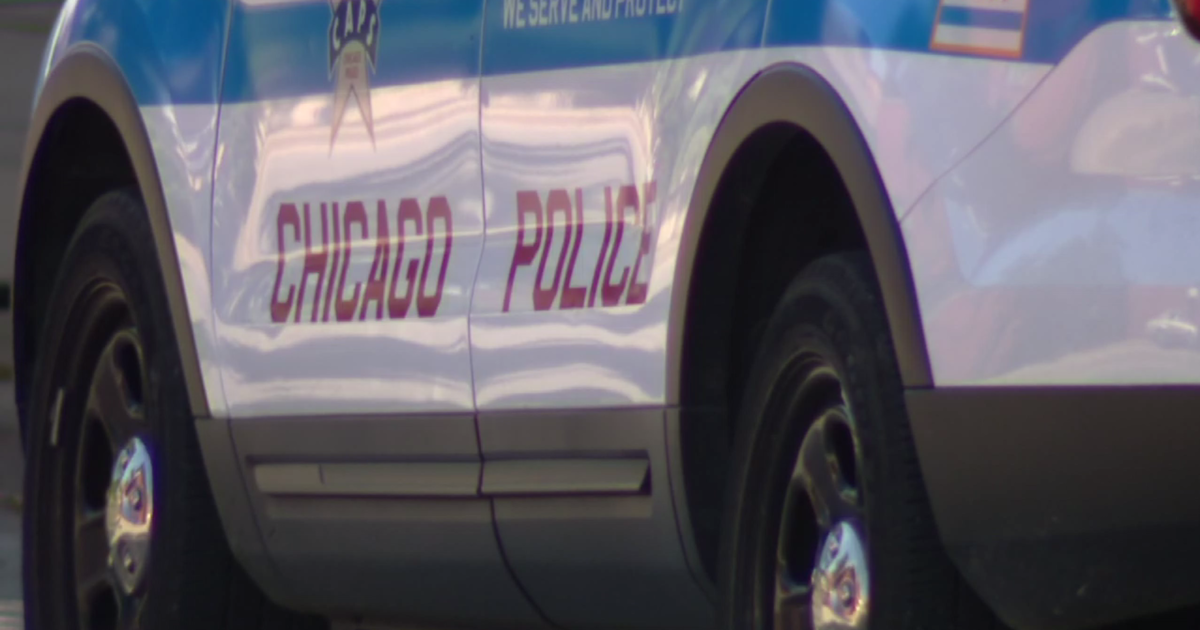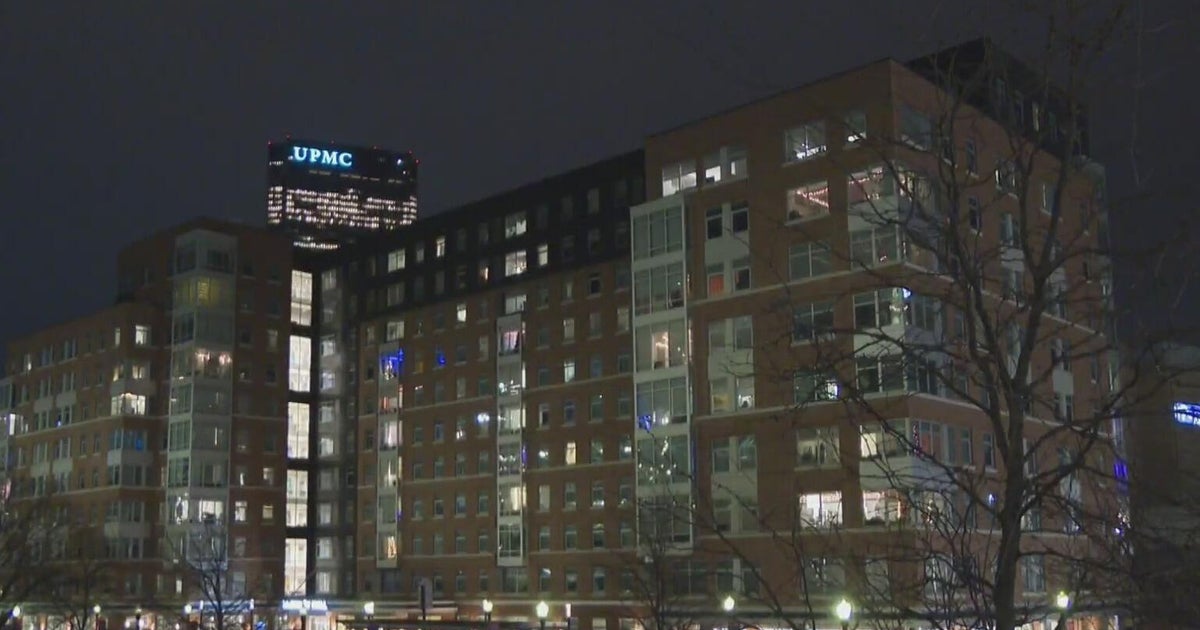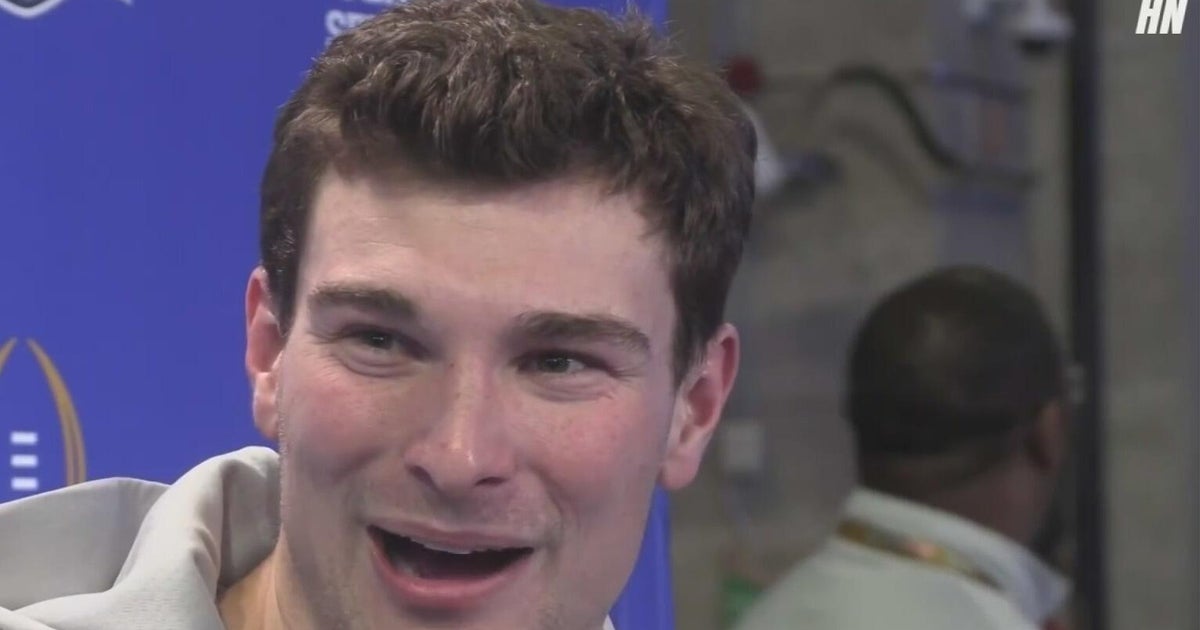Penn State Riot Ends Aspiring Army Officer's Dream
STATE COLLEGE, Pa. (CBS) -- Stints in jail. Hefty fines and restitution. Clouded futures. The consequences of their bad behavior have been steep for the Penn State students who took to the streets and rioted in the chaotic aftermath of Hall of Fame coach Joe Paterno's firing last November.
Perhaps none have learned a harder lesson than Justin Strine, a young man from central Pennsylvania whose planned career as an Army officer is over before it began—the casualty of his own split-second decision to put his hands on a news van, and a judicial system that considered him as guilty as classmates who did far worse that dark night in State College.
As the fall semester gets under way Monday, Strine has returned to campus, along with 15 other students found to have taken part in a nationally televised riot that caused tens of thousands of dollars in damage and embarrassed Penn State.
As he resumes his studies, nothing's the same for the 21-year-old from Hummelstown. He spent part of his summer in jail. Far worse: He's been kicked out of ROTC, his dream of carrying on his family's proud military tradition now out of reach.
"I'm losing everything I worked my entire life for," Strine said.
Strine's father, a career soldier, questions whether that's a just result.
"I had to stand by and watch my son plead guilty to something he didn't do," said Jim Strine.
Penn State sanctioned 32 students for their involvement in the riot, suspending 10 of them from one to three semesters and giving probation to the rest, university spokeswoman Lisa Powers said. Dozens of students were criminally charged, as well, and the guilty pleas have piled up over the last several months.
An estimated 4,000 to 5,000 people poured into downtown State College on Nov. 9 after the Penn State board of trustees abruptly and unexpectedly fired Paterno—the beloved football coach who led Penn State for nearly 46 seasons—and removed President Graham Spanier over the Jerry Sandusky child sex-abuse scandal.
What began as a peaceful protest of Paterno's unceremonious dismissal quickly turned ugly as a "riotous mob," as State College police would later call it, threw bottles and rocks, damaged cars, and tore down light posts and street signs.
Strine was in his off-campus apartment when he learned of Paterno's firing. He and a few friends decided to head downtown.
It was a rare misstep in what had been a slow, steady climb toward the officer ranks.
Strine's father is a helicopter pilot and instructor whose 28-year career has taken him to Iraq and Afghanistan. His grandfather is a retired Air Force flight surgeon. His brother and sister, aunt and uncle, cousins—all serve or have served. So it wasn't a surprise when Strine began plotting his own military career as an adolescent, reading the autobiographies of famed Army officers like Norman Schwarzkopf and Colin Powell.
At Penn State, Strine threw himself into ROTC as well as his studies, making the dean's list and spending the summer at Fort Benning, Ga., learning to jump out of airplanes. His goal: to be a pilot like his father.
"He was a good cadet," Jim Strine said.
A good cadet who made a bad decision the night of Nov. 9. Strine had driven himself and a couple friends to the State College commercial district, where they joined thousands of other protesters. At one point Strine and his friend, Christina Assainte, found themselves in a large crowd moving toward a WTAJ-TV news van, where vandals were pelting it with rocks.
To the rippling chants of "Flip it! Flip it!" two young men approached the side of the van, motioning others to join them, a video recording shows. That set off a frenzied rush toward the van, and within seconds a large group started to push.
A second wave of spectators then pressed toward the front of the van, perhaps to get a better view. Strine and Assainte were in the front of that group.
With the vehicle already on two wheels and going over, Strine placed his palms on the hood. Four seconds later, the van was on its side. But that's all it took for police and prosecutors to charge him with felony counts of riot and criminal mischief—the same charges filed against students who did the actual pushing.
"I always felt I was on a good path, and all the sudden I'm being made into a criminal. It was shocking to me they wouldn't even hear me out and let me explain that yes, I was there and shouldn't have been, but I wasn't this person they are making me out to be," Strine said. "No one ever looked at me as an individual. They looked at me as 5,000 Penn State rioters."
Terrified of being branded a felon, Strine agreed to plead guilty to reduced misdemeanor charges of disorderly conduct and criminal mischief. He served 30 days in jail—getting out Aug. 4 -- and will either be on parole or probation until 2015.
The consequences didn't end there. Penn State suspended Strine for a semester, and he was booted from ROTC and will have to repay every dime of his scholarship money, a total of $34,000. He also owes $8,500 in court costs, fines and restitution.
Strine said he knows he never should have left his apartment that night, never should have been in the vicinity of the van, never should have laid a finger on its hood.
"The van was already going over. It was so crazy, it was mayhem, and in that moment you stop thinking," Strine said. "I know I wasn't completely blameless. I was there, I touched the van and that was wrong. That's why I was happy to do community service for Penn State. But the criminal justice system went overboard."
His father said he's not seeking to minimize or excuse Justin's involvement, but contended the district attorney's office was far too aggressive—and his son's punishment far too severe.
"He owns something in this," Jim Strine said. "He just doesn't own what he's got."
Centre County District Attorney Stacy Parks Miller did not return multiple calls and emails seeking information about her office's handling of Strine's case or the other riot cases.
Messages left with State College police Chief Tom King were not returned.
Lt. Col. Ken Weiland, commander of Penn State's Army ROTC program, declined to comment Monday on Strine's removal from the program but cited military regulations that list a multitude of reasons why a cadet could be kicked out.
Powers, the Penn State spokeswoman, said any student who goes through the university disciplinary process can contest the charges or sanctions.
"Justin accepted responsibility and the sanctions in the disciplinary conference, and did not contest them through either avenue that was afforded to him," she said, adding that Penn State carefully assessed each student's culpability, the impact of the crime on the community, and other factors before imposing punishment.
Strine said he didn't contest the charges because he wouldn't have been permitted an attorney, and his testimony before the school could have been used against him in the criminal courts. He didn't challenge the sanctions because Penn State warned him that if he did, he could wind up being penalized more severely. And he said he was never told that a suspension would cost him his spot in ROTC.
Assainte, who was with Strine during the riot, said he had no criminal intent that night. She said he got a raw deal.
"I remember him saying, 'All I wanted to do was serve my country, and now I can't because of one little mistake that was caught on tape.' One lapse of judgment and he gets all this thrown at him? I felt so awful," she said. "I just think what happened was really, really unfair."
